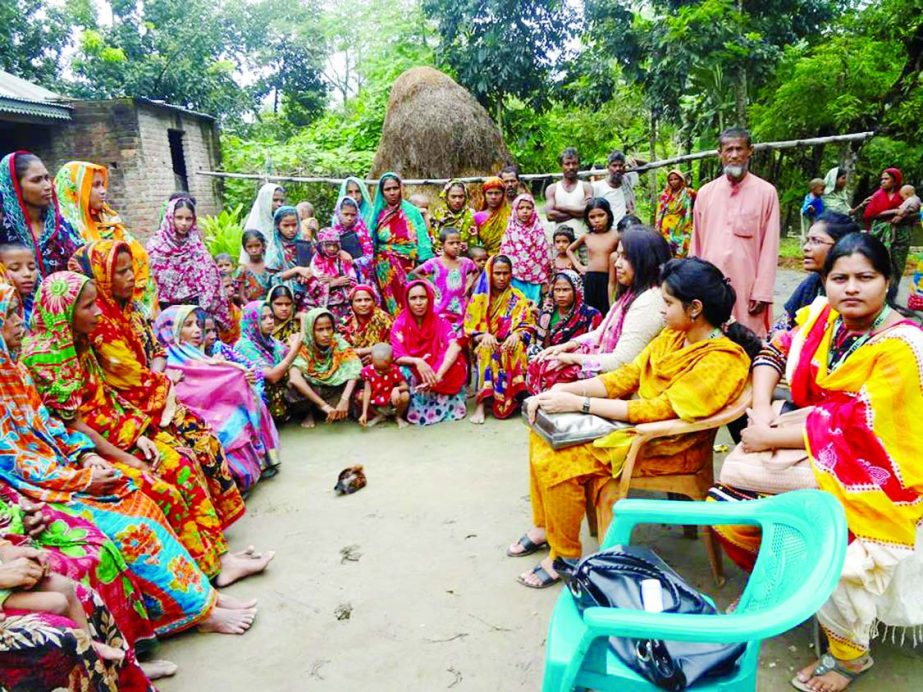
BSS, Rajshahi :
Discussants at a training session here Friday have underscored the need for alternative income-generation training for the unemployed youths coming from poor and marginalised farming families for their self-reliance.
They viewed despite of their strong will many of the youths in the drought-prone barind areas comprising Rajshahi and Chapainawabgonj districts couldn’t become money-makers due to lack of proper and time-fitting vocational training.
Time has come to arrange training course for the youths who are vulnerable to many social crimes like drug-addiction and smuggling. Many other government and non-government organizations concerned should come forward to this end, they added.
Agriculture Sustainable and Socio-Economic Development Organization (ASSEDO) organized the 20-day training on electrician and mobile phone servicing for some youths at Boharampur in Rajshahi city today (Friday).
Promoting Food Security and Livelihoods of Marginalized People of Barind Tract (PFLMB) Project supported the training course with financial support from Oxfam-Novib.
Main thrust of the project is to increase food security for poorest population of severely food insecure and hard to reach areas in Barind Tract.
Nachole Upazila Youth Development Officer Mijanur Rahman and ASSEDO Executive Director Agriculturist Rabiul Alam addressed the inaugural session as chief and special guests respectively with PFLMB Project Manager Mahbub Jaman Tapan in the chair.
Mobile Servicing Trainer Hasanuzzaman Dalim, Electrician Trainer Waliuzzaman Oli and PFLMB Project Technical Officer (Monitoring) Jakir Uddin Ahmed also spoke.
In phases, more than 50 interested youths both boys and girls age group between 16 and 24 coming from poor and most vulnerable target families will be brought under the training course on different vocations for their self-employment.
After successful completion of the course, each of the trainees will get income-generating devices valued at around Taka 5,000.
This project will also provide and develop vocational and trade-based skill training to the youths and also extend financial supports for generating income from alternative income sources.
Rabiul Alam said around 1600 people from poor and small farming families will be benefited directly while another 600 families indirectly from the project.
Besides, the scheme has provision of establishing linkage between different vocational training institutes and searching opportunity for support services for skills development training to the youths.
The programme intends to increasing agricultural production and income of marginalised and vulnerable families by adapting climate adaptive sustainable agricultural technologies, diversifying income generating activities and skill development.

